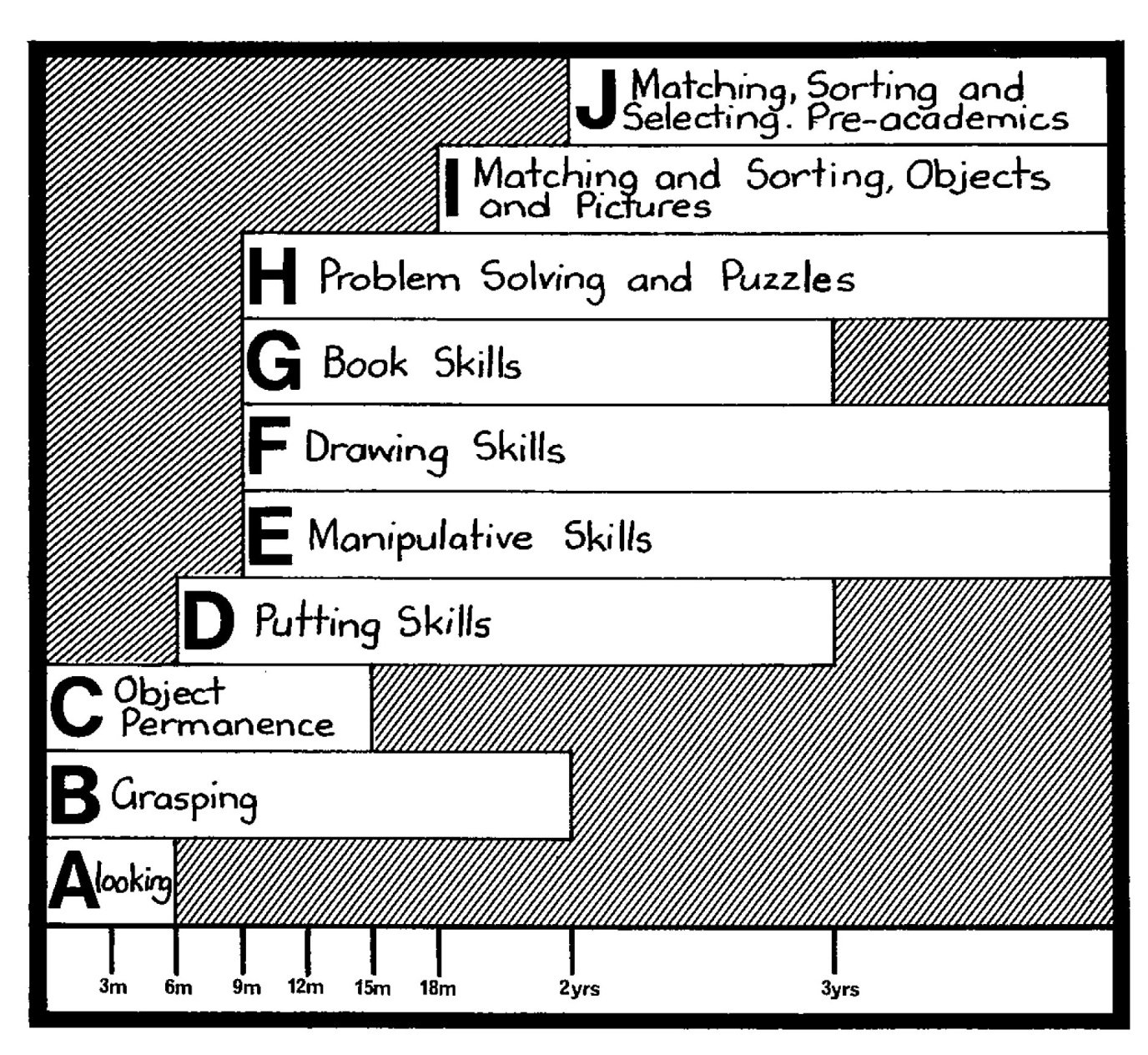Fine Motor Skills – Introduction
Fine Motor skills are skills which involve movements, or combinations of movements, of the small muscles of the hand and eye.
We also include under this heading conceptual skills (such as the ability to recognise colours and shapes and to solve problems) and preacademic skills (which provide a basis for reading and number skills later on).
The sequences in this program are:
- FM.A: Looking
- FM.B: Grasping
- FM.C: Object Permanence
- FM.D: Putting
- FM.E: Manipulative Skills
- FM.F: Drawing
- FM.G: Book Skills
- FM.H: Problem Solving and Puzzles
- FM.I: Matching and Sorting: Objects and Pictures
- FM.J: Matching, Sorting and Selecting: Preacademics
The table to the right will show you which sequences can be taught in parallel.

Why teach fine motor skills?
It is hard to generalise about such a diverse group of skills, but here are some points to consider:
- Fine Motor skills enable a child to learn more about his environment, by helping him to explore, compare and classify.
- Fine Motor skills help a child to achieve independence in self-care. Doing up a button is, at one level, a Fine Motor skill.
- Fine Motor skills allow a child to express his ideas creatively through play and through artistic activities.
- Fine Motor skills can enhance a child’s self-image and social skills by helping him to join in with the play and (at school age) the work of his peers.
Who might need specialised guidance?
Children with visual impairment or limited control over movement will benefit from specialised help. A specialist will be able to help you identify the underlying purpose of each activity, and find a way in which that purpose can be met for your child. For instance, the blind child who cannot match colours can learn to match things by texture, weight and so on. This will give him a way to sort out and classify the objects around him, just as a sighted child uses his concept of colour.
